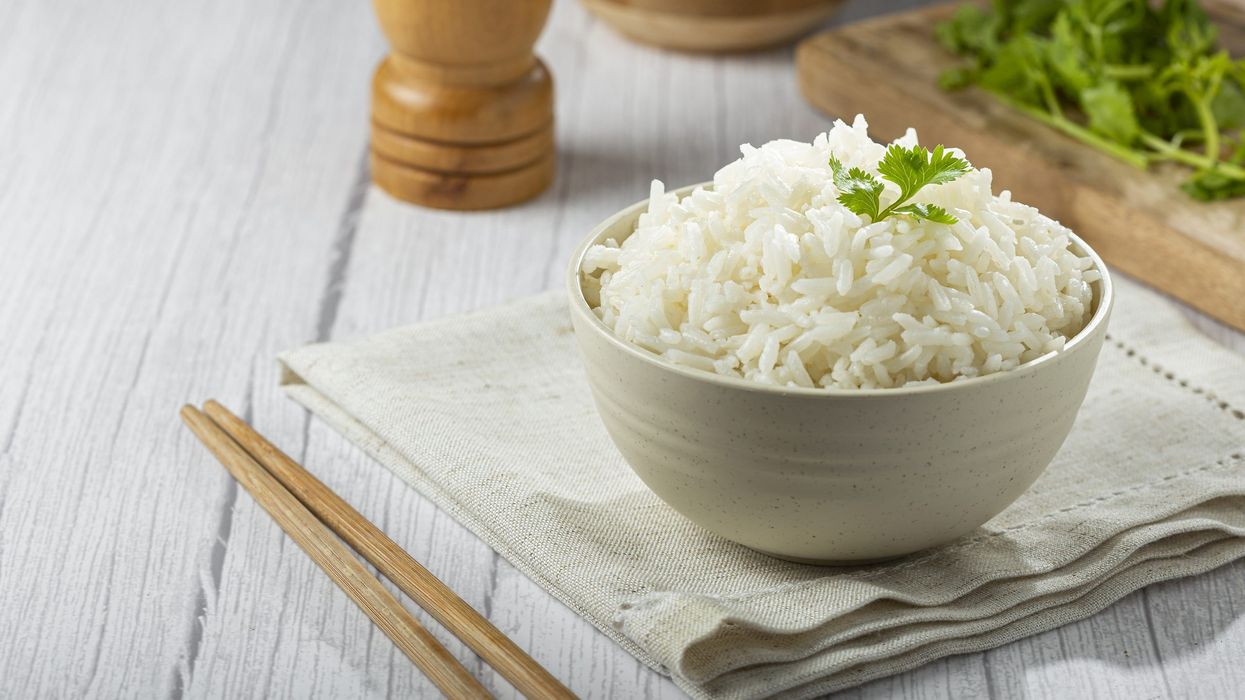Coronary artery disease or CAD affects more than 1.6million men and one million women in the UK, and a total of 15 million adults in the US. CAD reportedly occurs when the major blood vessels that supply the heart with oxygen and nutrients become damaged.
A new study has found that eating lots of white rice is just as bad for your heart in the long run as consuming lots of candy.
The report, which studied the eating habits and health histories of Iranians, states that the risk of premature coronary artery disease (PCAD) from eating white rice is similar to that of eating the kind of “unhealthy sugars and oils” that is found in sweet treats.
According to lead study author Dr Mohammad Amin Khajavi Gaskarei, the damage done by a diet high in these grains is similar to eating lots of junk food.
He is reported to have said, “A diet that includes consuming a high amount of unhealthy and refined grains can be considered similar to consuming a diet containing a lot of unhealthy sugars and oils.”
Researchers discovered that those who ate refined grains were more likely to develop coronary artery disease in middle age.
CAD is usually due to plaque and inflammation. When there is a build-up of plaque the arteries get narrowed due to the plaque and this decreases blood flow to the heart.
Over time this can cause angina, while a complete blockage can result in a heart attack, the Daily Mail informs.
Coronary artery disease is reportedly the most common kind of heart disease that affects 20.1million US adults (more than 7%) aged 20 and over.
In 2020, approximately two in 10 deaths from CAD occurred in adults who were reportedly less than 65 years old.
Additionally, in the UK, one person supposedly dies every eight minutes due to CAD, amounting to around 66,000 deaths annually.
CAD reportedly kills twice as many women in the UK as breast cancer, and even kills more women before they reach their 75th birthday.
The recent study comprised 1,168 healthy patients who were compared to 1,369 patients with coronary artery disease.
The participants were asked to answer a food frequency questionnaire to determine how often they ate whole and refined grains.
It was found that higher consumption of refined grains was linked to a higher risk of PCAD while eating more whole grains reduced the risk.
Whole grains, such as brown rice, oats, and whole-wheat bread, contain the entire grain, whereas refined grains are milled, which means they are ground into flour or meal to extend their shelf life.
However, grains lose key nutrients in this process. Many crackers, puddings, and pasta are also made with refined grains.
The body breaks down refined grains rapidly as they are stripped of fiber and this leads to a spike in blood sugar levels post a meal.
Over time, high blood sugar can damage blood vessels and the nerves that control the heart and cause plaque to form in the artery walls.
A 2019 report from the American College of Cardiology and the American Heart Association recommends a diet that mainly includes vegetables, fruits, legumes, whole grains, and fish to decrease the risk factors of heart disease.
Speaking about the importance of avoiding refined grains to reduce the risk of heart disease, Dr Gaskarei is quoted as saying, “As more studies demonstrate an increase in refined grains consumption globally, as well as the impact on overall health, it is important that we find ways to encourage and educate people on the benefits of whole grain consumption.”
The doctor adds, “Tactics to consider include teaching improved dietary choices in schools and other public places in simple language the general population can understand, as well as on television programs and by continuing to do high-level research that is presented at medical conferences and published in medical journals. Clinicians must also be having these conversations with each other and their patients.”
The study will be presented at the American College of Cardiology Middle East with the 13th Emirates Cardiac Society Congress in Dubai this Friday.












